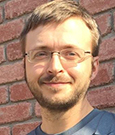
Peter Bankhead
University of Edinburgh
UK
EMBO Practical Course
EMBL is committed to sharing research advances and sustaining scientific interaction throughout the coronavirus pandemic. We are delighted to announce that the course is going virtual and invite you to join us online.
Bioimage analysis has become a keystone of biological research: the deluge of data produced by increasingly advanced microscopes calls for experts able to guide life scientists in the methods and software to be used to produce quantitative knowledge from this data. Due to the complexity of the data, without such expert guidance, it is very likely that image analysis algorithms may be applied incorrectly, possibly even producing erroneous results. Moreover, the diversity of imaging modalities, analysis algorithms and software solutions is growing so rapidly that even experts are overwhelmed.
This advanced course concentrates on teaching cutting-edge concepts and tools for quantitative image analysis, and will seek to upgrade the competencies of future bioimage analysis experts on both theoretical algorithm advancements as well as on practical implementation skills.
This course is aimed at early-career scientists as well as staff scientists working in microscopy or image analysis facilities who already have experience in bioimage analysis. Moreover, participants should already provide or show the clear intent of providing bioimage analysis support to other researchers with less or no experience in bioimage analysis.
In selecting participants we look for scientific excellence, immediate application of the methods learned, motivation to disseminate and networking skills. We expect a solid background in bioimage analysis and at least basic programming skills.
– Microscopy image quality control and image restoration
– Advanced image segmentation and complex cell phenotyping
– Handling large microscopy images (such as whole slide scans) and big N-dimensional data
– Neural-networks for image restoration, segmentation, and object classification.
– Co-localisation and spatial statistics
– Train the trainer: how to teach image analysis
Participants should be able to apply what they have learnt to their own image data as well as to image data of their colleagues.
For each module, participants will learn both theoretical and practical aspects of the latest developments in the fields of bio image analysis concepts and tools.
After this course, they are expected to be able to confidently operate and interface with a representative selection of open and closed source image analysis software, including Fiji, QuPath, ilastik, morphographX, KNIME, Imaris, and APEER, in a reproducible and shareable manner.
In addition, participants will gain new insights about how to set up an image analysis course in their own institution.

University of Edinburgh
UK
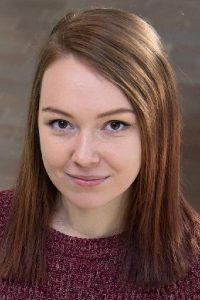
Uppsala University
Sweden
STFC
UK
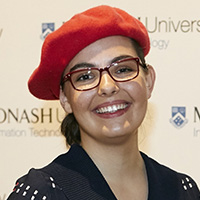
Monash University
Australia
Institut Curie
France

University of Edinburgh
UK
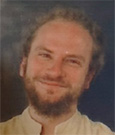
Max Planck Institute of Molecular Cell Biology and Genetics
Germany
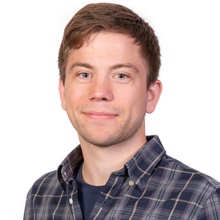
EMBL-EBI Hinxton
UK
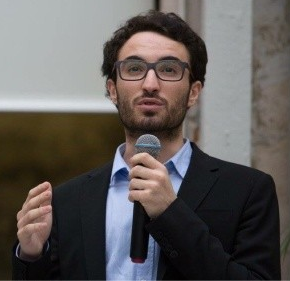
Institut Curie
France

Max Planck Institute of Molecular Cell Biology and Genetics
Germany
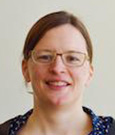
SciLifeLab/ Uppsala University
Sweden

EMBL Heidelberg
Germany

EMBL Heidelberg
Germany

Max Planck Institute of Molecular Cell Biology and Genetics
Germany
Institut Curie
France
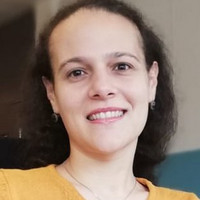
SciLifeLab & Uppsala University
Sweden

EMBL Heidelberg
Germany
Max Planck Institute of Molecular Cell Biology and Genetics
Germany
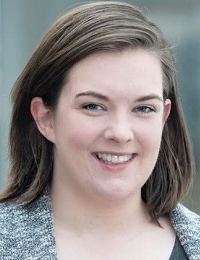
University of Edinburgh
UK
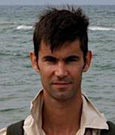
ETH Zurich
Switzerland
Monash University
Australia
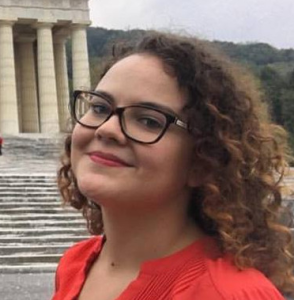
EMBL Heidelberg
Germany
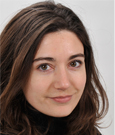
University of Nantes
France

EMBL Heidelberg
Germany

EMBL-EBI Hinxton
UK

SciLifeLab & Uppsala University
Sweden

Institut Curie
France
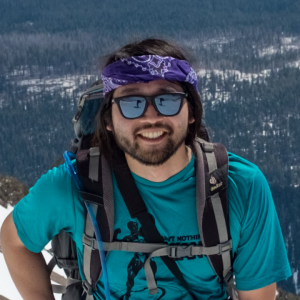
ETH Zürich
Switzerland
Institut Curie
France

Max Planck Institute of Molecular Cell Biology and Genetics
Germany

SciLifeLab/ Uppsala University
Sweden

ETH Zurich
Switzerland

University of Nantes
France

EMBL Heidelberg
Germany

SciLifeLab & Uppsala University
Sweden

Course and Conference Team Lead
EMBL Heidelberg
Germany
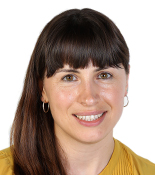
EMBL Heidelberg
Germany
Got something to say? Tweet it! #EMBOBioImage
All times in the programme below are shown as the time in Europe/Berlin.
To find out the equivalent time zone in your location, enter Berlin, the programme time and your city into the Time Zone Converter.
| Time | Speaker |
|---|---|
| 13:00 – 15:00 | Onboarding |
| 15:00 | End of Day 0 – Continued access to networking and discussion platform, pre-recorded lectures and course materials on eCampus |
| Time | Speaker |
|---|---|
| 10:15 – 10:45 | Welcome, introduction and course overview |
| 10:45 – 12:00 | Icebreaker activity |
| 12:00 – 12:30 | Technology Talk – Aivia by Leica Microsystems |
| 12:30 – 13:30 | Lunch Break (including optional Q&A with Aivia by Leica Microsystems speaker after Technology Talk) |
| 13:30 – 16:30 | Afternoon session |
| 13:30 – 14:15 | Image Restoration and Segmentation – current methods and available tools Florian Jug – Max Planck Institute of Molecular Cell Biology and Genetics, Germany Debrief on pre-recorded talk (including quiz feedback) plus practical introduction |
| 14:15 – 14:25 | Break |
| 14:25 – 15:45 | Practical: in pairs (instructors available) |
| 15:45 – 16:30 | Feedback on practical session |
| 16:30 – 16:45 | Further discussion and questions |
| 16:45 – 17:15 | Virtual speed networking |
| 17:15 | End of Day 1 – Continued access to networking and discussion platforms, pre-recorded talks and course materials on eCampus |
| Time | Speaker |
|---|---|
| 08:45 – 09:00 | Welcome coffee and overview of the day |
| 09:00 – 12:00 | Morning session |
| 09:00 – 09:30 | Introduction to using napari and writing plugins Kevin Yamauchi – ETH Zürich, Switzerland Debrief on pre-recorded talk (including quiz feedback), lecture on napari plugins, practical introduction |
| 09:30 – 09:40 | Break |
| 09:40 – 11:30 | Practical: in pairs (instructors available) |
| 11:30 – 12:00 | Feedback on practical session and extended work on plugins (time permitting) |
| 12:00 – 12:30 | Technology Talk – Aquifer |
| 12:30 – 13:30 | Lunch Break (including optional Q&A with Aquifer speaker after Technology Talk) |
| 13:30 – 16:30 | Afternoon session |
| 13:30 – 14:00 | Image-based shape analysis Virginie Uhlmann – EMBL-EBI Hinxton, UK Debrief on pre-recorded talk (including quiz feedback) plus practical introduction |
| 14:00 – 14:10 | Break |
| 14:10- 16:00 | Practical: in pairs (instructors available) |
| 16:00 – 16:30 | Feedback on practical session |
| 16:30 – 17:00 | Further discussion and questions |
| 17:00 | End of Day 2 – Continued access to networking and discussion platforms, pre-recorded talks and course materials on eCampus |
| Time | Speaker |
|---|---|
| 08:45 – 09:00 | Welcome coffee and overview of the day |
| 09:00 – 12:00 | Morning session |
| 09:00 – 09:45 | Ilastik, segmentation, classification Anna Kreshuk – EMBL Heidelberg, Germany Debrief on pre-recorded talk (including quiz feedback) plus practical introduction |
| 09:45 – 09:55 | Break |
| 09:55 – 11:15 | Practical: in pairs (instructors available) |
| 11:15 – 12:00 | Feedback on practical session |
| 12:00 – 12:30 | Technology Talk – ThermoFisher-AMIRA |
| 12:30 – 13:30 | Lunch Break (including optional Q&A with Thermofisher-AMIRA speaker after Technology Talk) |
| 13:30 – 16:30 | Afternoon session |
| 13:30 – 14:20 | Virtual social programme: Quiz Time |
| 14:20 – 14:30 | Break |
| 14:30 – 17:30 | Train the Trainer |
| 17:30 – 17:45 | Discussion and questions |
| 17:45 | End of Day 3 – Continued access to networking and discussion platforms, pre-recorded talks and course materials on eCampus |
| Time | Speaker |
|---|---|
| 08:45 – 09:00 | Welcome coffee and overview of the day |
| 09:00 – 12:00 | Morning session |
| 09:00 – 09:45 | Computational phenotyping Thomas Walther – Institut Curie, France Debrief on pre-recorded talk (including quiz feedback) plus practical introduction |
| 09:45 – 09:55 | Break |
| 09:55 – 11:15 | Practical: in pairs (instructors available) |
| 11:15 – 12:00 | Feedback on practical session |
| 12:00 – 12:30 | Technology Talk – NEUBIAS |
| 12:30 – 13:30 | Lunch Break (including optional Q&A with NEUBIAS speaker after Technology Talk) |
| 13:30 – 17:00 | Afternoon session |
| 13:30 – 14:15 | QuPath, digital pathology Peter Bankhead – University of Edinburgh, UK Debrief on pre-recorded talk (including quiz feedback) plus practical introduction |
| 14:15 – 14:25 | Break |
| 14:25 – 15:45 | Practical: in pairs (instructors available) |
| 15:45 – 16:30 | Feedback on practical session |
| 16:30 – 17:00 | Further discussion and questions |
| 17:00 | End of Day 4 – Continued access to networking and discussion platforms, pre-recorded talks and course materials on eCampus |
| Time | Speaker |
|---|---|
| 08:45 – 09:00 | Welcome coffee and overview of the day |
| 09:00 – 12:00 | Morning session |
| 09:00 – 09:45 | Spatial statistics in biomedical images Carolina Wählby – Uppsala University, Sweden Debrief on pre-recorded talk (including quiz feedback) plus practical introduction |
| 09:45 – 09:55 | Break |
| 09:55 – 11:15 | Practical: in pairs (instructors available) |
| 11:15 – 12:00 | Feedback on practical session |
| 12:00 – 12:30 | Technology Talk – Bitplane-IMARIS |
| 12:30- 13:30 | Lunch Break (including optional Q&A with Bitplane-IMARIS speaker after Technology Talk) |
| 13:30 – 15:30 | Participants work on own data (instructors and trainers available) |
| 15:30 – 15:40 | Break |
| 15:40 – 16:10 | Course sum up |
| 16:10 – 17:00 | Bar Mixer and Farewell |
| 17:00 | End of course |
Registration Fees (include admission, course materials):
| Academia | 125 Euro |
| PhD Student | 125 Euro |
| Industry | 225 Euro |
The registration fee should be paid only after acceptance to the course. The results will be announced approximately 2-3 weeks after the application deadline.
After registration, you can submit your motivation letter via a separate link that will be provided in the email confirmation. Alternatively, you can access the link on the confirmation page directly after registering. The same login credentials are used for both processes.
Instructions
Guidelines
Please note:
Motivation letter length: The maximum limit of 2000 characters refers to manually typed text (spaces included).
Additional questions: The maximum characters for your answers in the free text field boxes is 255 (spaces included).
Text only: If you copy-paste the text, hidden formatting might still be included and you will be informed that your text exceeds the character limit. We recommend either:
Symbols: If you have special symbols in your text make sure you are using Unicode characters, otherwise these will not be recognised by the tool.
Registration Fee Waivers
All academic and student registrants are invited to apply for a registration fee waiver, provided by the EMBL Advanced Training Centre Corporate Partnership Programme and EMBO. The registration fee waiver covers the registration sum that you have paid to attend the meeting. Conference participants are not required to pre-pay the registration fee to be selected for a fee waiver for a virtual meeting. If you have already paid the registration fee and are awarded a fee waiver, it will be reimbursed after the meeting. Course participants are required to pay the course fee in advance, which will then be reimbursed after the recipient has attended the course.
For participants and speakers with childcare responsibilities there is the possibility to apply for a grant, provided by the EMBL Advanced Training Centre Corporate Partnership Programme and EMBO, to offset childcare costs incurred when participating at a virtual event. Eligible costs include fees for a babysitter or childcare facility or travel costs for a care giver. Please note that priority will be given to early stage researchers. Costs will be reimbursed after the meeting only once a reimbursement form and original receipts have been received. Attendance at the event is required in order to be eligible to receive the reimbursement. In order to apply for this grant, you must be registered by the abstract submission deadline.
Applies to selected courses only. Availability will be indicated during the abstract or motivation letter submission process.
This grant covers costs related to your attendance to the course (registration, travel and accommodation costs). The grant is restricted to PhD students and postdocs who conduct basic biomedical research.
Whether you are eligible to apply for a travel grant, depends on when you received your university entrance qualification (e.g. Abitur, A-Levels, High School Diploma, Final State Examination):
– for PhD and MD students, as well as graduates, the university entrance qualification must not have been obtained more than 11 years ago at the time of the envisaged course
– for postdocs, the university entrance qualification must not have been obtained more than 13 years ago at the time of the envisaged course
Applications for financial assistance can be submitted via the submission portal* (for the submission of abstracts for conferences or the submission of motivation letters for courses) by completing the Financial Assistance Application Section (underneath the section for entering abstract/motivation letter information). The link to the portal can be found in the registration confirmation email that you will receive after registering for the conference or course.
For conferences, if you are not submitting an abstract, you can still apply for financial assistance in the submission portal by following the instructionshere. Note that priority will be given to those submitting an abstract to present at the conference. In your application you will be asked to answer questions regarding your motivation for applying, and, for registration fee waivers, the reasons why your lab cannot fund your attendance and how your attendance will make a difference to your career. Application for financial support will not affect the outcome of your registration application.
*For some events, applications for Childcare Grants will still be done by email. Information about the grant will be sent out shortly after the abstract/motivation letter deadline. Please contact the event Conference Officer if you have any questions.
The scientific organisers will select the recipients of registration fee waivers during the abstract selection process for conferences and the participant selection process for courses. Results will be announced approximately 3 – 4 weeks before the event start date. Selection results do not impact your admission to the meeting. Registration fee waiver selection is based on your current work or study location, your motivation for applying, the reasons for needing financial support and the impact this event will have on your career. Childcare grants are allocated based on career stage, with priority given to early stage researchers.
A list of external funding opportunities can be found here, and information on attending a conference as an event reporter here.
For further information about financial assistance please refer to the FAQ page.
The EMBL eCampus learning platform will be used to collaborate, communicate and network with all of the course participants. All participants will receive information on how to join shortly before the course. We recommend using Chrome, Safari or Mozilla Firefox browsers for eCampus.
Zoom and Gather.town will be used during the course for the live discussion and feedback sessions and the course practicals and networking. More information will be provided closer to the start of the course.
While using the software during the course, please make sure you have nothing else using your bandwidth. We recommend using a wired connection. Recommended bandwidth is indicated below.
Please note that it is highly recommended to use two computer screens.
Please do:
Please don’t:
Additional information can be found in our Code of Conduct.
It is important to stay healthy and move around, especially when you are attending an event virtually. We have put together a few coffee break stretches and yoga videos in the events Slack workspace for you to enjoy during the event.
Questions during and after the talks can be asked in live streaming platform. The chair moderates the questions and shares them with the speaker. If time runs out or you think of a question later, you can use Slack to ask your questions in the dedicated session channels or via direct message.
The programme is planned based on Central European Summer Time (CEST), unless otherwise stated. As many virtual participants are attending from around the world, we do our best to accomodate as many timezones as possible when creating the programme. Please take your time zone into consideration when planning your attendance.
We are using a virtual event platform for this conference. More information about the platform will be shared ahead of the conference.
Event Supporter:

Sponsorship Opportunities
We offer a variety of event sponsoring possibilities, with the flexibility to select a set sponsorship package or combine individual sponsorship options to suit your event budget. Discounts are available for companies sponsoring multiple events at EMBL Heidelberg. View other conferences, or contact sponsorship@embl.de for further information.
If you are interested in becoming a media partner of this event, please visit our media partnerships webpage.

Date: 28 Jun - 2 Jul 2021
Location: Virtual
Deadline(s):
Application: Closed
Organisers:
Contact: Nathalie Sneider